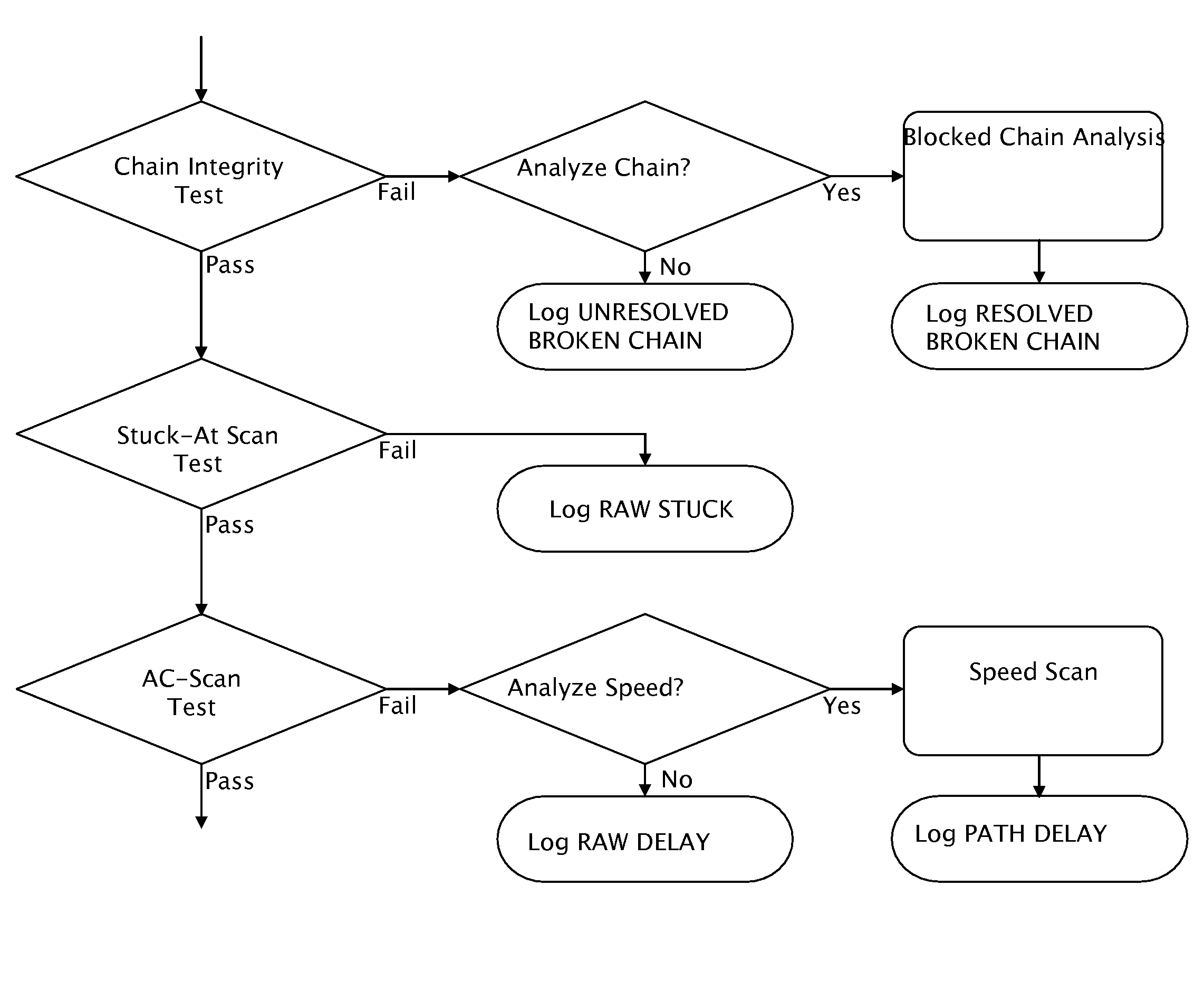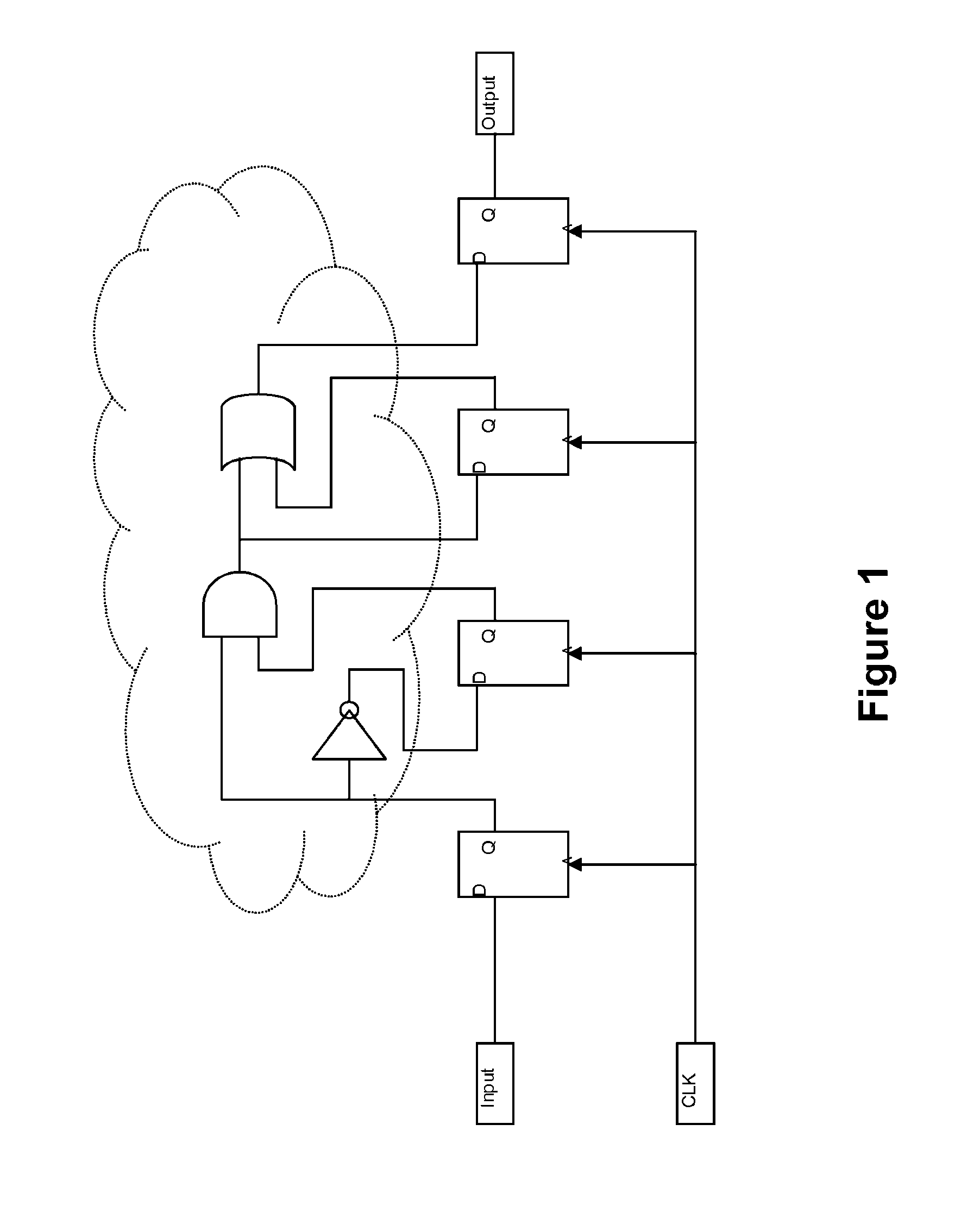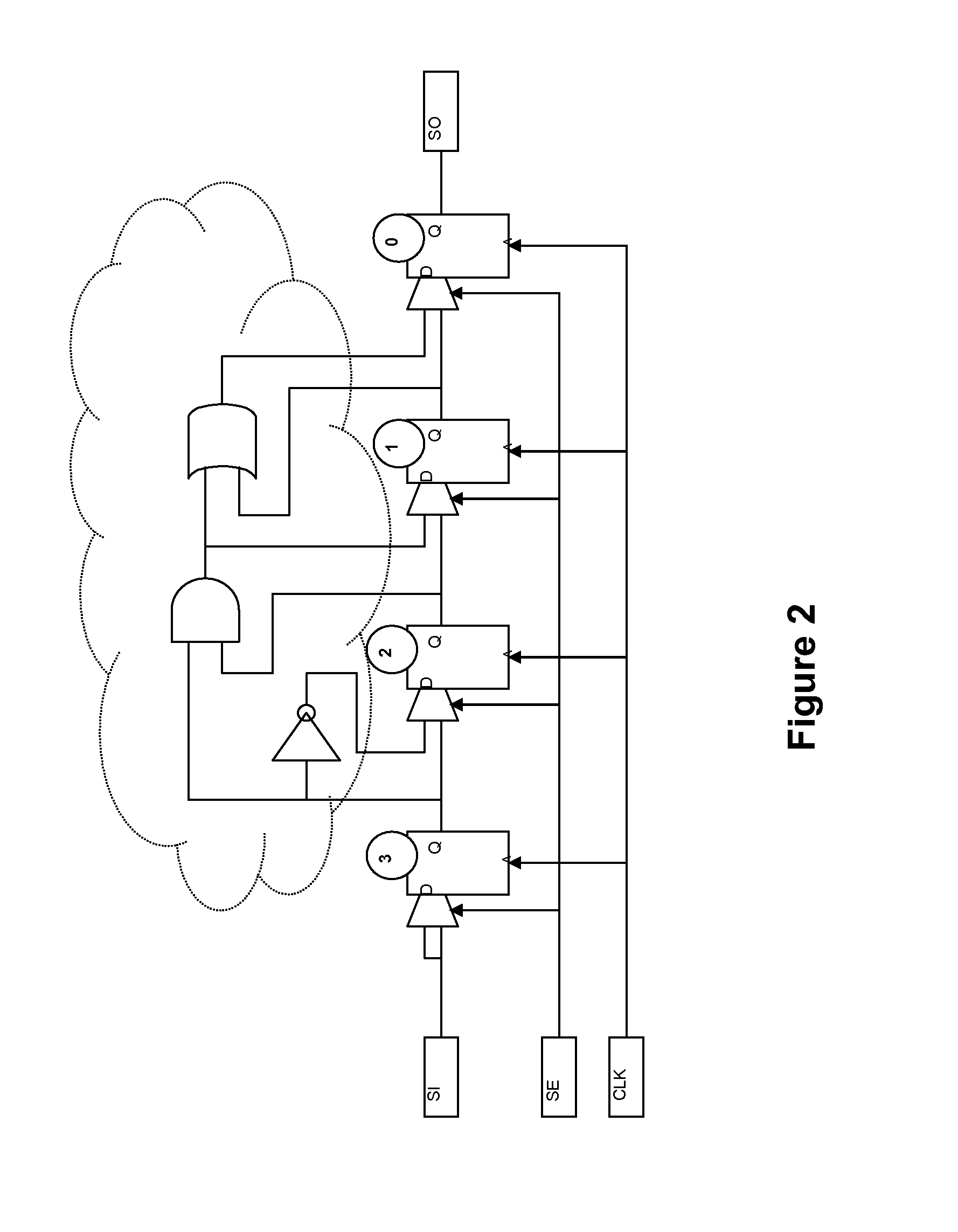Process for improving design-limited yield by localizing potential faults from production test data
a technology of production test data and potential faults, which is applied in the direction of power supply testing, instrumentation, program control, etc., can solve the problems of not being able to exploit the understanding of circuit functionality to geometrically locate divergences, the effectiveness of well-known yield management system tools begin to lose effectiveness, and the visibility of particulate defects is near the limit of optical inspection tools
- Summary
- Abstract
- Description
- Claims
- Application Information
AI Technical Summary
Benefits of technology
Problems solved by technology
Method used
Image
Examples
Embodiment Construction
[0038]Failure Type Classification
[0039]Semiconductor test programs are typically organized such that scan tests are divided into three areas: Chain Integrity Tests, Stuck-At Tests, and AC-Scan tests. Chain Integrity Tests validate that the scan chains are operational and can be used by the Stuck-At and AC-Scan Tests to check logic. The Stuck-At Tests validate that all logic paths are operational and are not stuck to either a high or low state. The AC-Scan Tests validate that logic paths can be transitioned in suitable time to meet the mission of the device design.
[0040]The flow chart in FIG. 5 shows such an organization and categorizes the failures from these three outputs as UNRESOLVED BROKEN CHAIN, RAW STUCK, and RAW DELAY.
[0041]The flow chart adds a decision after Chain Integrity Test failures: Analyze Chain? If this decision is true, the Blocked Chain Analysis process will be invoked to find the position in the scan chain where the block occurs. If the chain break position is fo...
PUM
 Login to View More
Login to View More Abstract
Description
Claims
Application Information
 Login to View More
Login to View More - R&D
- Intellectual Property
- Life Sciences
- Materials
- Tech Scout
- Unparalleled Data Quality
- Higher Quality Content
- 60% Fewer Hallucinations
Browse by: Latest US Patents, China's latest patents, Technical Efficacy Thesaurus, Application Domain, Technology Topic, Popular Technical Reports.
© 2025 PatSnap. All rights reserved.Legal|Privacy policy|Modern Slavery Act Transparency Statement|Sitemap|About US| Contact US: help@patsnap.com



